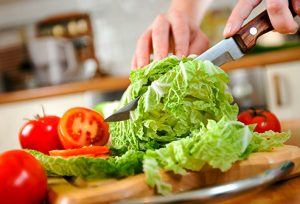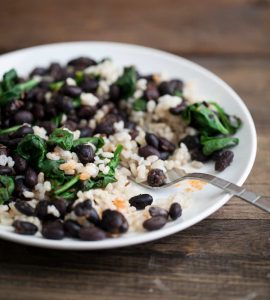There are so many reasons why people have to start watching their diet. Top among them is for weight management among those who feel that they are becoming too fat. There are those who also watch their weight though they are not fat yet, they want to remain slim and maintain their shape. This applies to models, beauty pageants and some health conscious persons.
Young men would want to eat in certain ways so as to support their muscle building exercises. So they take protein shakes, casilan, vitamins among other supplements. These they believe will help them build and firm up their muscles. Those in sports also would want to eat in certain ways so as to stay on top in their competition. Those suffering from malnutrition, diabetes, hypertension, heart disease, among others would also have a cause to watch their diet.
What happens beyond realizing the fact that you need to diet is of grave concern to us dieticians. There is a state of confusion in the person who wants to start dieting. This is because they do not know what to avoid or not to avoid. Friends, relatives, healthcare providers, books and the internet act as sources of information; both wrong and right to this confused person who must diet at all cost. The most difficult part of the issue is after these people consult with dieticians. They are now aware of the best eating plans that will help them; often these plans are at variance with what they are used to. There is therefore the need for anyone in this kind of situation to plan on how to follow their new diet plans.
There are so many things people do when dieting that is all wrong; skipping meals, eating only fruits, fasting throughout the day, eating only vegetables, drinking lime juice, and others. Let us take a look how bad it is to be skipping meals;
Skipping meals can be that bad
I have seen patients who skip breakfast for reasons such as; lack of appetite, lack of time, it is just not their style, work schedules would not allow them, they want to lose weight, and some just do not have the food to eat, among others. Some skip lunch because they do not want to put on weight, they do not get time off busy schedules at work to eat, among others. Supper is mainly skipped because they do not want to continue climbing the weight ladder or they just do not feel hungry in the evening. Some people also eat a late lunch deliberately just so that they will not eat supper.
It is always good to have all meals of the day. Even those who must lose weight should take their small meals; low in calories and high in fibre. Late in the night; for example at 9pm, heavy meals are not healthy. You can make do with the low calorie cum high fibre combinations anyway.
Where there is lack of appetite, the experts can be of help. My only caution to those who cannot take a break and take their lunch at work, or skip breakfast just because they have to rush and beat traffic and get to work early is that, they may fall sick some time later in life and their employers will engage the services of someone else who is fit to do what they were doing in the office. The work continues without you.
Skipping meals can result in; decreased energy expenditure, decreased metabolic rate, weight gain, increased preference of fat in the diet, decreased strength, increased injury rates, decreased bone density, decreased body temperature, decreased resistance to disease, decreased testosterone level, raised blood cholesterol, ulcers, mood swings and menstrual dysfunction.
Let’s see how the body reacts when meals are skipped;
Any time you skip a meal, your body goes into a “fasting mode”. During this fasting, carbohydrates, proteins, and fats are all used for energy. Carbohydrates are the number one source of fuel, followed by fats and then protein.
As the fasting continues, the glycogen (glucose storage) deposits found in the liver and muscle become depleted. As the glucose levels drop, the body looks for other sources of fuel. In efforts to produce energy (glucose), fats are broken down. This process results in the production of ketone bodies which are also then broken down and absorbed into the Krebs cycle to produce energy. This process can cause the following negative effects on the body; nausea, fatigue, constipation, lowered blood pressure, elevated uric acid, stale taste in the mouth, and foetal harm/stillbirth in pregnant women.
In this same state of using ketone bodies for energy, the body begins to reduce energy output in an effort to protect both fat and lean tissue. In addition, as the lean tissues begin to shrink, they become weaker and perform less metabolic work, reducing energy expenditure even more. Hormones also slow down metabolism to conserve lean body tissue. This is also known as “starvation mode”. This mechanism is thought to have evolved as a defense against starvation. When metabolism slows down, fewer calories are needed and weight loss slows down.
So in effect, skipping a meal in order to lose weight will rather lead to no weight loss.
These effects are not desirable
Skipping meals and restricting calories will create cravings. Rapid high blood sugar occurs when you give in to these cravings. Also you might end up eating fatty foods (pastries and ice cream) which may result in too much consumption of fats.
When glycogen stores are depleted and not being replaced because you have not eaten, your body goes into a low energy state.
Unfortunately, the weight that is lost (after skipping meals) is mostly water and muscles.
There is slowed metabolism when you skip meals. This means that your body will have a tough time digesting food. Since you would get so hungry later in the day, you are likely to eat more than one meal’s worth at one sitting. The already slowed metabolism is going to take a lot longer to work the oversized meal throughout your body. This will rather result in weight gain.
The success rate of losing weight from skipping meals is relatively poor. A significant amount of weight may be lost at first, but once again this is water and muscle weight, and the chances of gaining the weight back, plus more is quite good.
A final word
Dietary restriction by skipping meals should be avoided. The insufficient energy imbalance has undesirable effects, such as increased fat storage and weakened performance. The depressed metabolism will conserve its energy, making dieting less effective and more difficult. Using this method in hopes to lose weight may become frustrating and result in even more unhealthy ways of dieting.
It has been proven that consuming sufficient calories is better than not getting enough. In addition, getting calories on time, thus preventing energy deficit state during the day, is better than getting them late.
Be sure to eat all meals throughout the day. They do not have to be huge meals, but enough to get your metabolism going. Eat well stay healthy. You are blessed!!!
By Wise Chukwudi Letsa




Nice article its very helpfull thanks for sharing